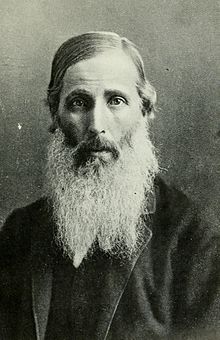Population ethics
Jump to navigation
Jump to search

~ Gustaf Arrhenius
Population ethics is the philosophical study of the ethical problems arising when our actions affect who is born and how many people are born in the future.
Quotes[edit]
- For the last thirty years or so, there has been a search underway for a theory that can accommodate our intuitions in regard to moral duties to future generations. The object of this search has proved surprisingly elusive...The main problem has been to find an adequate population theory, that is, a theory about the moral value of states of affairs where the number of people, the quality of their lives, and their identities may vary. Since, arguably, any reasonable moral theory has to take these aspects of possible states of affairs into account when determining the normative status of actions, the study of population theory is of general import for moral theory.
- Gustaf Arrhenius, Future generations: A challenge for moral theory, Uppsala University, 2000
- Total and average utilitarianism are very different theories, and where they differ most is over extinction. If global warming extinguishes humanity, according to total utilitarianism, that would be an inconceivably bad disaster. The loss would be all the future wellbeing of all the people who would otherwise have lived. On the other hand, according to at least some versions of average utilitarianism, extinction might not be a very bad thing at all; it might not much affect the average wellbeing of the people who do live. So the difference between these theories makes a vast difference to the attitude we should take to global warming. According to total utilitarianism, although the chance of extinction is slight, the harm extinction would do is so enormous that it may well be the dominant consideration when we think about global warming. According to average utilitarianism, the chance of extinction may well be negligible.
- John Broome (1992). Counting the Cost of Global Warming, p. 121
- Parfit (1984) rejected Totalism and Averagism...[and] failed to find any alternative axiology that he himself considered satisfactory, but held out hope that...some fully satisfactory population axiology, called 'Theory X' by way of placeholder, might be found. Much of the subsequent literature has consisted of attempts to formulate such a 'Theory X'. However...every extant population axiology is open to serious objection: if it does not entail the Repugnant Conclusion then it entails the Sadistic Conclusion, or is anti-egalitarian, or has obviously unacceptable implications concerning future-people cases, or otherwise leads to some similarly serious objection. If this were where matters rested, one might yet hold out hope that the fully satisfactory 'Theory X' is lurking just around the corner. However, several authors have also formulated impossibility theorems for population axiology. These are formal results that purport to show, for various combinations of intuitively compelling desiderata ('avoid the Repugnant Conclusion', 'avoid the Sadistic Conclusion', 'respect Non-Anti-Egalitarianism', and so forth), that the desiderata are in fact mutually inconsistent: that is, simply as a matter of logic, no population axiology can simultaneously satisfy all of those desiderata
- Hilary Greaves (2017). Population Axiology, Philosophy Compass, 12(11).
- One common, but mistaken, response to the impossibility theorems is to turn claim that these theorems are problematic only for consequentialists. It is important to see that this is a mistake. For one thing...all moral theories need an axiology: while non-consequentialists might spend much of their theorising time on the non-axiological part of their theory, the axiological part too must be part of the full normative story at the end of the day. For another, it can be shown...that there are straightforward deontological analogues of the impossibility theorems (concerning the relation 'ought to choose rather than' in place of 'is better than'), so that even a moral theory that has no place for axiology faces essentially the same set of issues.
- Hilary Greaves (2017). Population Axiology, Philosophy Compass, 12(11).
- Classical Utilitarians...would claim, as Sidgwick did, that the destruction of mankind would be by far the greatest of all conceivable crimes. The badness of this crime would lie in the vast reduction of the possible sum of happiness.
- Derek Parfit (1984). Reasons and Persons, Oxford University Press, p. 454
- [The Repugnant Conclusion:] For any possible population of at least ten billion people, all with a very high quality of life, there must be some much larger imaginable population whose existence, if other things are equal, would be better even though its members have lives that are barely worth living.
- Derek Parfit (1984). Reasons and Persons, Oxford University Press, p. 342

~ Henry Sidgwick
- Is it total or average happiness that we seek to make a maximum?...we foresee as possible that an increase in [population] numbers will be accompanied by a decrease in average happiness...if we take Utilitarianism to prescribe, as the ultimate end of action, happiness on the whole...it would follow that, if the additional population enjoy on the whole positive happiness, we ought to weigh the amount of happiness gained by the extra number against the amount lost by the remainder. So that, strictly conceived, the point up to which, on Utilitarian principles, population ought to be encouraged to increase, is not that at which average happiness is the greatest possible...but that at which the product formed by multiplying the number of persons living into the amount of average happiness reaches its maximum.
- Henry Sidgwick, The Methods of Ethics, book 4, chapter 1, section 2 (6th ed., 1901)
- Another type of ultimate disagreement between utilitarians, whether hedonistic or ideal, can arise over whether we should try to maximize the average happiness of human beings...or whether we should try to maximize the total happiness or goodness...Would you be quite indifferent between (a) a universe containing only one million happy sentient beings, all equally happy, and (b) a universe containing two million happy beings, each neither more nor less happy than any in the first universe? Or would you, as a humane and sympathetic person, give a preference to the second universe? I myself cannot help feeling a preference for the second universe.
- J. J. C. Smart, An Outline of a System of Utilitarian Ethics, in J. J. C. Smart and Bernard Williams, Utilitarianism For and Against, 1961, p. 26
- It sometimes happens that one possible population is better than another with respect to the distribution of welfare. A population axiology...is a theory of such comparisons. For example, suppose that two populations have the same size, and that in the first population everyone has a happy and fulfilling life, while in the second population every life is unhappy and devoid of meaning. Then any plausible population axiology will rule that the first population is better than the second.
- Teruji Thomas (2017). Some Possibilities in Population Axiology, Mind, 127(507): 807–832.
External links[edit]
- Populationethics.org includes a list of essential academic readings on population ethics
- The Repugnant Conclusion in the Stanford Encyclopedia of Philosophy
- Population Ethics in MacAskill, W. and Chappell, R. (2021). Introduction to Utilitarianism: An Online Textbook.
